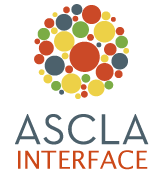By Jen Nelson
Director and State Librarian, Minnesota Department of Education, State Library Services
Every year more than 9,000 public libraries including over 17,000 public library outlets in the United States file an annual report with the Institute of Museum and Library Services (IMLS). Collectively, these 1,666,000 pieces of data tell a story about the state of libraries. With its data, we find out that the high use of public libraries, overall, has persisted despite uncertainties about funding, that the use of e-book collections is starting to plateau and that users logged-in nearly 334 million sessions on almost 280,000 public computers in 2013.
But at the same time, the data leaves many questions unanswered – how are libraries engaged in workforce development? What services are they offering to help young children prepare for school and older youth to prepare for college or careers? Are older adults in the community using the library at rates greater than millennials or families? What percent of libraries offer internet access? And at what speed? Perhaps most importantly, the data does not tell us what difference a public library makes to the well-being of its community?
The Chief Officers of State Library Agencies (COSLA) strategic agenda calls for it to promote increased awareness of the value of public libraries in the United States. Effective data is essential to accomplishing that. Recognizing the gaps in the Public Library Survey and the challenges that come from a proliferation of one-off surveys administered by a host of organizations, COSLA has proposed a cooperative agreement with IMLS to create a National Public Library Data and Outcomes Action Plan. Several concerns have emerged with the explosion of surveys in recent years. Primary among them are that the burden of increased data collection (which includes collection, analysis and reporting efforts) is beyond the capacity of many libraries, that data collection efforts are not coordinated, and that the data collected (i.e. information gathered) does not reflect the needs nor tell the story of libraries in the 21st century.
The proposed project seeks to develop a plan that will allow for the timely collection of reliable, comparable and meaningful data on public libraries. Data that describes and documents library infrastructure (buildings, staff and broadband), resources (collections, funding and services) and impact (outcomes, indicators and outputs) has tremendous value for assessing library impact.
In the short term, the project will determine what measures need to be collected, who is responsible for collection and ensuring on-going storage and access. Measures that Matter aims to engage stakeholders in developing a plan that:
- Reduces the burden of data collection
- Eliminates duplication of data collection efforts
- Improves the timeliness of data release
- Increases the uptake on sampling surveys
- Improves the quality of data collected
- Increases the capacity of public libraries to track and measure outcomes that align with community-based measurement systems
- Identifies components of a universal public library services model
By creating a National Public Library Data and Outcomes Action Plan, Measures that Matter will likely redraw the landscape of public library data collection. A National Action Plan developed with the active engagement of key stakeholders – local libraries, IMLS, state library administrative agencies, professional associations, affiliated funders and researchers – will increase organizational commitment to library data collection. In doing so, its long-term impact will be to offer libraries and their stakeholders sustained access to information that documents the role, value and impact of public libraries.
COSLA anticipates a decision from IMLS on Measures that Matter by mid-summer. To stay abreast of developments, follow @COSLA_US or visit www.cosla.org, or contact COSLA Executive Director Timothy Cherubini at tcherubini@cosla.org or (859) 514-9826.
Image: Research Data Management by janneke staaks
